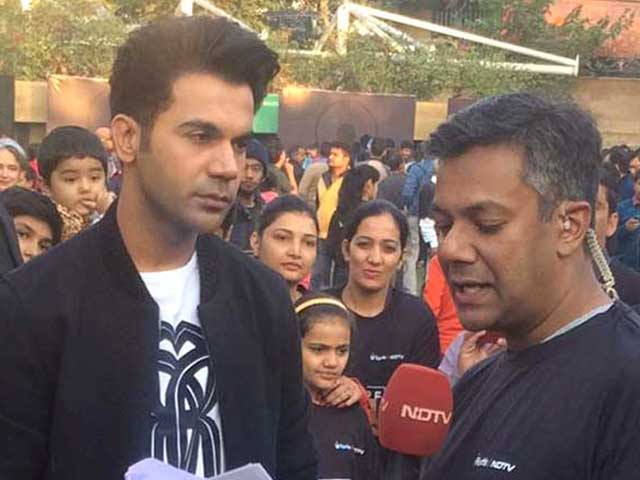
Highlights
- There is no disfigurement of the body in organ transplantation process
- The expense of organ transplant is not borne by the donor's family
- Organ donation pledge is not legally binding
It is widely acknowledged that there is no greater gift than the gift of life. A single person can save eight lives after Brain Death by donating heart, lungs, liver, kidneys, small intestine and pancreas. Organ donation rate in India is only 0.8 per million population as compared to more than 30 per million population in most western countries. Lack of awareness combined with misconceptions are some of the primary reasons for such a huge demand and supply gap of organ donation.
Some of the common myths associated with organ donation are as follows:
Myth 1: Brain Death Is Not Death
In some patients (with severe head injury or massive stroke) the brain dies but the heart continues to beat for some time, thus maintaining oxygenation to the organs. Brain death is death, not coma. Brain death is not reversible. In fact, when braindead is declared, the death form is also filled, even as the heart is still beating.
Myth 2: Diagnosis Of Brain Death Is Complicated And Expensive
The diagnosis of brain dead in India is based on bedside tests performed by a team of four doctors and repeated after 6 hours. No expensive tests are required. Under the current rules, when a neurologist or neurosurgeon is not available in a hospital, any physician, anesthetist or intensivist, nominated by the medical administrator in charge of the hospital, and approved by the appropriate state authority, can be a member of the Brain Death Committee.
Myth 3: Organ Donation After Brain Death Is Illegal
Organ donation is legal. The Transplantation of Human Organs Act of 1994 has provided for the regulation of removal, storage and transplantation of human organs for therapeutic purposes in India. The act was updated in 2011 and the subsequent rules of 2014 streamlined the process of declaration of brain death and organ retrieval.
Myth 4: My Religion Stops Me From Organ Donation
No religion prohibits organ donation. Religious beliefs are a punching bag we tend to use as an excuse for poor organ donation in the country.
Below are some relevant excerpts from religious texts:
Hinduism:
“It is said that the soul is invisible, knowing this you should not grieve for the body.” Daan is the act of selfless giving.
-Bhagvad Gita, chapter 2:25.
Sikhism:
“The dead sustain their bond with the living through virtuous deeds”.
– Guru Nanak, Guru Granth Sahib, p 143.
Islam:
“Whosoever saves the life of one person would be as if he saved the life of all mankind”.
– Holy Quran, chapter 5:32.
Christianity:
Sacrifice and helping others are consistent themes in Christianity, which teaches the principle of seeking for others what you hope others would do for you.
– Teaching of Jesus Christ-
“Freely you have received, freely give.”
– Mathew, chapter 10:8.
Myth 5: If I Donate My Organs I May Be Born Without A Kidney Or Liver In My Next Birth
This ridiculous thought is easily countered by the argument that while getting rid of a part of the body surgically for a malignancy no such thought comes to mind! Then why the negative thoughts when it comes to doing something positive for someone else.
Myth 6: Organ Donation Will Leave The Body Disfigured?
The treating teams have a mandate to spare no efforts in saving life and have no part to play in the process of organ donation. There is no disfigurement or mutilation of the body. A person who is brain dead perceives no pain. Organs are removed with the greatest care and dignity by a team of specially trained surgeons in the operation theater.
Myth 7: Permission Of The Family Is Not Required For Organ Donation And Retrieval, If I Have A Donor Card?
The donor card has no legal standing. At the time of brain dead the donor is on a ventilator and the family is required to take the decision. Making a pledge helps the family to make the right decision. Therefore, it is of utmost importance that at the time of signing up as an organ donor, one shares the decision with the family.
Myth 8: Organ Donation Is Expensive
From the moment a family says yes to organ donation, the billing is stopped. The cost of maintenance of the deceased donor, organ retrieval, transportation and preservation is borne by the recipient or institution or Government.
Also Read: Organ Donation: Don’t Let These Myths Confuse You
About The Author:
Dr. Avnish Seth is Director Gastroenterology & Hepatobiliary Sciences at Fortis Memorial Research Institute, Gurugram and Director Fortis Organ Retrieval & Transplant (FORT). Dr. Seth established the Armed Forces Organ Retrieval & Transplant Authority (AORTA) in 2007, the first successful organ donation program in North India and was awarded the Vishist Seva Medal by the President of India in 2009.
Disclaimer: The opinions expressed within this article are the personal opinions of the author. The facts and opinions appearing in the article do not reflect the views of NDTV and NDTV does not assume any responsibility or liability for the same.










According to latest scientific research, people who are brain dead or in coma are still conscious. Using sophisticated techniques the patients have even been made to communicate with researchers. They might even feel pain. The conditions are also reversible in many cases. The information is available on Science sites.
So…removing organs from people who are brain dead or in coma is not correct.